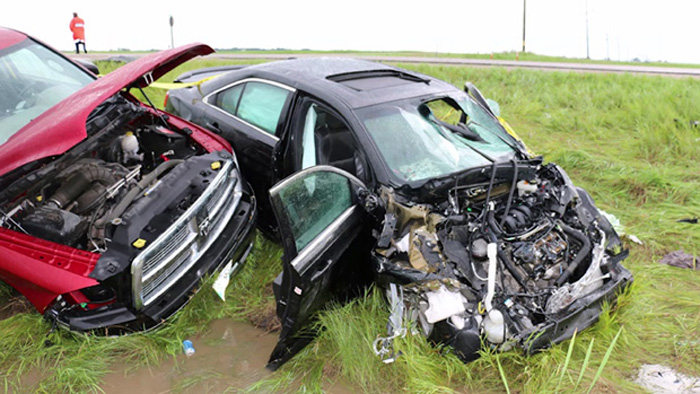For the first four months of 2018, there have been 23 people killed on Manitoba’s public roadways. This is double from the same time frame in 2017 and 44 per cent higher than average over the last five years, according to Manitoba Public Insurance.
With the news of these concerning numbers, there’s no better time for Manitobans to focus on road safety than Canada Road Safety Week taking place May 15-21. This annual awareness campaign focuses on behaviours that put drivers, passengers and other road users most at risk: distracted driving, impaired driving, non-seatbelt use, speeding and incidents involving vulnerable road users.
“Road safety is the responsibility of all Manitobans,” said Ward Keith, vice-president, Business Development & Communications, Manitoba Public Insurance. “Behind these numbers are real lives lost and families left to deal with the senseless and often unnecessary loss of a loved one.”
“As a community we need to start thinking differently about road safety. We need to change the conversation and create a culture where even one motor vehicle fatality is considered one too many,” added Keith.
Preliminary analysis reveals that of the 14 drivers and passengers killed in fatal crashes so far this year in the province, nearly 40 per cent were not using a seatbelt at the time of the crash. Other contributing factors include impaired driving, distracted driving and speed.
Last September, Manitoba’s Provincial Road Safety Committee released its road safety action plan. The Road to Zero: Manitoba Road Safety Plan 2017-2020 is the first plan of its kind in Manitoba, and provides a vision for Manitoba to have the safest roads in Canada. The plan adopts a safe systems approach to road safety in which road users, highway infrastructure, vehicle design and technology, legislation, enforcement, and health services all play a role in developing solutions to reduce or eliminate injury and death on our roadways.
Highlighted priorities from the plan include more coordinated research and planning between agencies within the safe system, early adoption of automated vehicle technology, improved safety for vulnerable road users through smart road design, evolving Manitoba’s traffic safety culture, reducing driver distraction and impairment, increasing awareness of medically at-risk drivers of all ages, and examining new speed management strategies to lower risk, among others.
“Canada Road Safety Week should serve as an important reminder to all road users that we must all do our part to keep ourselves and others safe on the road”, said Keith. “This collective focus on road safety has never been more important as we try to reverse the trending in fatalities experienced in the first 4 months of 2018, and as we head into summer when weekend and vacation traffic tends to be heavier on our highways.”
“Together we can achieve our vision of zero traffic fatalities and make our roads the safest in Canada for the benefit of our families, neighbours and communities.”




